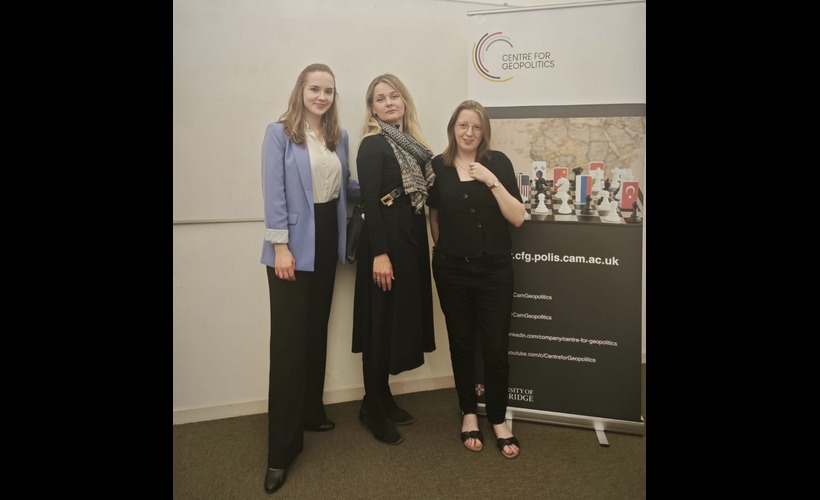By Charles Clarke and Dr Hugo Bromley
The Baltic Geopolitics Programme convened a panel on energy security for the 15th Baltic Sea Region Forum in Turku, Finland on 15 June 2023. The panel was chaired by Charles Clarke, and Rear Admiral Chris Parry, a member of the Centre’s advisory board, and research fellow Dr Hugo Bromley spoke to an audience from academia, defence and government.
The overall Forum addressed the changing security environment, safety of infrastructure and cross-border crime. The programme consisted of plenary presentations and three panel discussions on:
- Changing security environment in the Northern Europe,
- Securing and maintaining critical energy supply and infrastructure in the Baltic Sea Region and
- Combating cross-border crime.
The keynote introduction was given by Artis Pabriks, Director of the Northern European Policy Center and previous Foreign Minister and Defence Minister of Latvia. He pointed out that Russia has never admitted the crimes of the Soviet era, that there is no remorse or self-consciousness. This contrasts notably with Germany after World War 2 and makes it very difficult to find the right way to approach Russia. He suggested that our two main goals must firstly be to make Russians incapable of attacking the Baltic Sea region countries or Ukraine and secondly to find ways to make Russia lose its appetite for attack.
The other opening speeches and the first panel focused strongly on Russia‘s invasion of Ukraine and Russia‘s unchanged imperialistic nature. The common opinion was that we have not yet, even after one and a half years of war, learned to read Russia. This has to be a priority for future work.
The Baltic Geopolitics Programme convened the second of these panels on the topic of “Securing and maintaining critical energy supply and infrastructure in the Baltic Sea Region”. The importance of international cooperation was emphasized throughout which includes building international networks among government, academia and industry in order to help create collective resilience against hybrid attacks. The panel can be seen in full at 2:24:18 (see sidebar).
Dr Hugo Bromley explored the historical context around current issuers in the region, before outlining the importance of co-operation between European states on defence issues and the economics of the green transition. Admiral Chris Parry then spoke on the immediacy of the Russian threat, and the vulnerability of our infrastructure.
We are grateful to Admiral Parry for his remarks, and to the Centrum Balticum for their partnership in this event. The Baltic Geopolitics Programme will continue to consider issues of energy security and the political economy of the region in the coming months.
The third panel concentrated on cross-border crime and migration. There is a need for the European Union to provide consistent new legislation and concrete financial support for member states that have been attacked by instrumentalized migration, or migration as a weapon. Cyber threats can undermine economic, democratic and societal structures, such as through discouraging people from using digital services, or compromising critical infrastructure.
Grzegorz Poznański, the Director-General, The Council of the Baltic Sea States Secretariat contributed on Civil Society Security and the closing speech was given by the European Union’s Counter-Terrorism Coordinator, Ilkka Salmi. He explained that the recent terrorist acts in the European Union have been committed by lone actors, who have had no formal command and control structure. This makes the terrorists more difficult to detect and more difficult to organise against.
More information about the Forum programme and speakers can be found at here and the news report of the event can be viewed here.







